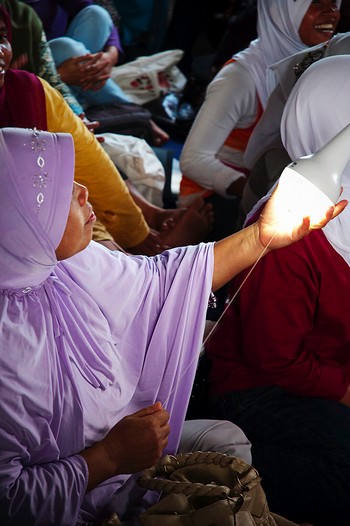Two non-profit organisations work together to help women headed households break out of the poverty cycle
Cindy Nawilis
 |
A Pekka member in Lombok tests out a solar-powered light bulb for the first timeWillow Paule |
About 9 million Indonesian households were headed by women in 2010. These households typically consist of up to six dependents and are poor, with many living below the poverty line. Female heads are between 20 to 60 years of age, and almost 40 per cent have never gone to school. These women are typically widows or have been abandoned by their husbands. With growing numbers of Indonesian men going abroad to work, some provinces have seen sharp increases in women headed households as migrant worker husbands start new families elsewhere and never return.
These Indonesian women, who are the sole providers for their families, face a range of discriminatory practices. To start with, female-headed households are not legally recognised under the 1974 Marriage Law, which states that men are heads of family. This makes it difficult for female heads to access government provisions for the poor, such as cash transfer schemes (Bantuan Langsung Tunai) or community health insurance (Jamkesmas). At the same time, expensive court fees stop women from accessing their own marriage or birth certificates, thereby preventing them from obtaining legal divorces or seeking any kind of compensation. The absence of mechanisms to assist female-headed households traps these marginalised women











